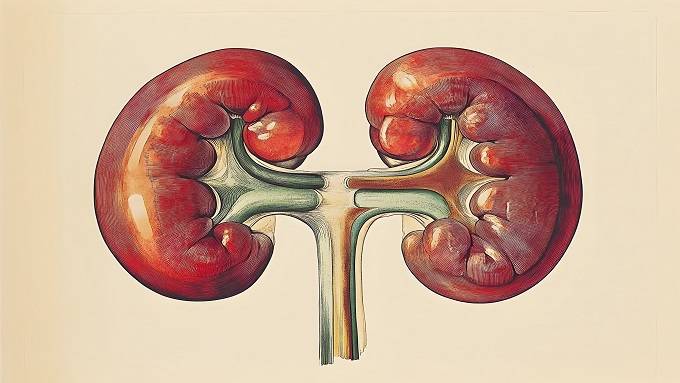IN VITRO ANTIBACTERIAL ACTIVITY OF EUCALYPTUS (Melaleuca leucadendra) OIL AGAINST METHICILLIN-RESISTANT Staphylococcus aureus (MRSA)

Downloads
Highlights
- The use of eucalyptus oil is natural and risk-free. It has a lengthy history of use as a traditional medicine in Asia, including Indonesia.
- It has been demonstrated that eucalyptus oil possesses antibacterial activity against MRSA, and this activity was controlled by the oil's concentration.
Abstract
Background: Eucalyptus (Melaleuca leucadendra) oil is used by Indonesians as an herbal medicine. Eucalyptus containing 1,8-cineol at 72.30% is expected to be used as an antibacterial. Objective: The study aimed to assess the antibacterial activity of eucalyptus oil against Methicillin-resistant Staphylococcus aureus (MRSA) bacteria in vitro. Material and Method: The materials used were eucalyptus oil (M. leucadendra) in various concentrations with ethyl acetate as solvent. The research method used was the agar-well diffusion assay. The MRSA was suspended to 0.5 McFarland turbidity. The MRSA suspension was thoroughly swabbed onto the surface of the Mueller-Hinton agar plate. The wells were made with a diameter of 0.6 mm on Muller-Hinton agar aseptically and 100 µl of eucalyptus oil was put into the well using a micropipette and incubated for 24 hours at 37°C. The diameter of the inhibition zone was measured with a caliper. Statistical analysis using the SPSS software edition 23. Result: Eucalyptus oil solution starting from a concentration of 10% to 100% had an antibacterial response, which could be seen by the formation of a bacterial inhibition zone around the eucalyptus oil (M. leucadendra) wells. The inhibition ability of eucalyptus oil against MRSA bacteria was greatest at a concentration of 90% with an inhibition zone of 31.26 mm. It was found that the concentration of eucalyptus oil affected the diameter of the bacterial inhibition area. Conclusion: Eucalyptus oil has been shown to have antibacterial activity against MRSA and was influenced by the concentration of the oil.
Bautista-Silva, J. P., Seibert, J. B., Amparo, T. R., Rodrigues, I. V., Teixeira, L. F. M., et al. 2020. Melaleuca leucadendra essential oil promotes loss of cell membrane and wall integrity and inhibits bacterial growth: An in silico and in vitro approach. Current Microbiology, 77(9): 2181–2191. doi: 10.1007/s00284-020-02024-0.
Boswihi, S. S., Udo, E. E., Mathew, B., Noronha, B., Verghese, T., et al. 2020. Livestock-associated methicillin-resistant staphylococcus aureus in patients admitted to Kuwait Hospitals in 2016–2017. Frontiers in Microbiology, 10. doi: 10.3389/fmicb.2019.02912.
Clinical and Laboratory Standards Institute (2021) M100 Performance standards for antimicrobial susceptibility testing. 31st ed. Available at: https://www.treata.academy/wp-content/uploads/2021/03/CLSI-31-2021.pdf.
Cordeiro, L., Figueiredo, P., Souza, H., Souza, A., Andrade-Júnior, F., et al. 2020. Terpinen-4-ol as an antibacterial and antibiofilm agent against Staphylococcus aureus. International Journal of Molecular Sciences, 21(12): 4531. doi: 10.3390/ijms21124531.
da Costa, T., de Oliveira, C., Chambers, H., Chatterjee, S. 2018. PBP4: A new perspective on Staphylococcus aureus β-lactam resistance. Microorganisms, 6(3): 57. doi: 10.3390/microorganisms6030057.
Guo, Y., Song, G., Sun, M., Wang, J., Wang, Y. 2020. Prevalence and therapies of antibiotic-resistance in Staphylococcus aureus. Frontiers in Cellular and Infection Microbiology, 10. doi: 10.3389/fcimb.2020.00107.
Hakim, R. I., Wilson, W., Darmawati, S. 2019. Uji aktivitas antibakteri ekstrak ethanol daun kayu putih (Melaleuca leucadendron L.) terhadap pertumbuhan methicillin resistant Staphylococcus aureus (MRSA). Prosiding Seminar Nasional Mahasiswa Unimus, 2. Available at: https://prosiding.unimus.ac.id/index.php/mahasiswa/article/view/448.
Han, Y., Sun, Z., Chen, W. 2019. Antimicrobial susceptibility and antibacterial mechanism of limonene against Listeria monocytogenes. Molecules, 25(1): 33. doi: 10.3390/molecules25010033.
Hidayah A. N., Wasito, E. B., Debora, K., Basori, A., Isnaeni., et al. 2019. Correlation between the bacteriostatic and bactericide effect with antibiofilm and anticolony spreading from Javanese Citronella Oil on Methicillin-Resistant Staphylococcus aureus (MRSA). Folia Medica Indonesiana, 55(1): 1-9. doi: 10.20473/fmi.v55i1.24277.
Huang, J., Yang, L., Zou, Y., Luo, S., Wang, S., et al. 2021. Antibacterial activity and mechanism of three isomeric terpineols of Cinnamomum longepaniculatum leaf oil. Folia Microbiologica, 66(1): 59–67. doi: 10.1007/s12223-020-00818-0.
Ismanto, A. W. 2018. Ekstraksi minyak atsiri dari daun kayu putih (Melaleuca leucadendra Linn.) dengan metode microwave hydrodistillation dan solvent-free microwave extraction. Institut Teknologi Sepuluh November. Available at: https://repository.its.ac.id/57274/.
Lakhundi, S., Zhang, K. 2018. Methicillin-resistant Staphylococcus aureus: Molecular characterization, evolution, and epidemiology. Clinical Microbiology Reviews, 31(4). doi: 10.1128/CMR.00020-18.
Lewis, P. O., Heil, E., Covert, K. L., Cluck, D. B. 2018. Treatment strategies for persistent methicillin"resistant Staphylococcus aureus bacteraemia. Journal of Clinical Pharmacy and Therapeutics, 43(5): 614–625. doi: 10.1111/jcpt.12743.
Monzote, L., Scherbakov, A. M., Scull, R., Satyal, P., et al. 2020. Essential oil from melaleuca leucadendra: Antimicrobial, antikinetoplastid, antiproliferative and cytotoxic assessment. Molecules, 25(23): 5514. doi: 10.3390/molecules25235514.
Moo, C. L., Osman, M. A., Yang, S. K., Yap, W. S., Ismail, S., et al. 2021. Antimicrobial activity and mode of action of 1,8-cineol against carbapenemase-producing Klebsiella pneumoniae. Scientific Reports, 11(1): 20824. doi: 10.1038/s41598-021-00249-y.
Pal, M., Kerorsa, G. B., Marami, L. M., Kandi, V. 2020. Epidemiology, pathogenicity, animal infections, antibiotic resistance, public health significance, and economic impact of Staphylococcus aureus: A comprehensive review. American Journal of Public Health Research, 8(1): 14–21. doi: 10.12691/ajphr-8-1-3.
Pollitt, E. J. G., Szkuta, P. T., Burns, N., Foster, S. J. 2018. Staphylococcus aureus infection dynamics. PLOS Pathogens. Edited by A. Prince, 14(6): e1007112. doi: 10.1371/journal.ppat.1007112.
Riedel, S., Hobden, J. A., Miller, S., Morse, S. A., Mietzner, T. A., et al. 2019. Jawetz, Melnick, & Adelberg's medical microbiology, Twenty-eighth edition. McGraw-Hill. Available at: https://accessmedicine.mhmedical.com/qa.aspx?resourceid=2656#.
Rimbawanto, A., Kartikawati, N. K., Latumahina, F. 2021. Conservation and utilization of Melaleuca cajuputi sub sp cajuputi, an indigenous species in Moluccas Island, Indonesia. IOP Conference Series: Earth and Environmental Science, 800(1): 012040. doi: 10.1088/1755-1315/800/1/012040.
Silva, V., Monteiro, A., Pereira, J. E., Maltez, L., Igrejas, G., et al. 2022. MRSA in humans, pets and livestock in Portugal: Where we came from and where we are going. Pathogens, 11(10): 1110. doi: 10.3390/pathogens11101110.
Tille, P. M. 2017. Bailey & Scott's Diagnostic Microbiology. Fourteenth. Elsevier, St. Louis, Missouri.
Trisnawati, T., Retnowati, W., Indiastuti, D. N. 2020. Combination of red coconut coir (Cocos nucifera L. var rubescens) and linezolid on Methicillin-Resistant Staphylococcus aureus in vitro Growth. Biomolecular and Health Science Journal, 3(1), 11–14. https://doi.org/10.20473/bhsj.v3i1.19128.
Vestergaard, M., Frees, D., Ingmer, H. 2019. Antibiotic resistance and the MRSA problem. Microbiology Spectrum. Edited by V. A. Fischetti et al., 7(2). doi: 10.1128/microbiolspec.GPP3-0057-2018.
Copyright (c) 2023 Constatia Lidwina Targanski, Wiwin Retnowati, Mohammad Fathul Qorib, Manik Retno Wahyunitisari, Wilda Mahdani

This work is licensed under a Creative Commons Attribution 4.0 International License.
1. The journal allows the author(s) to hold the copyright of the article without restrictions.
2. The journal allows the author(s) to retain publishing rights without restrictions.
3. The legal formal aspect of journal publication accessibility refers to Creative Commons Attribution 4.0 International License (CC-BY).
































